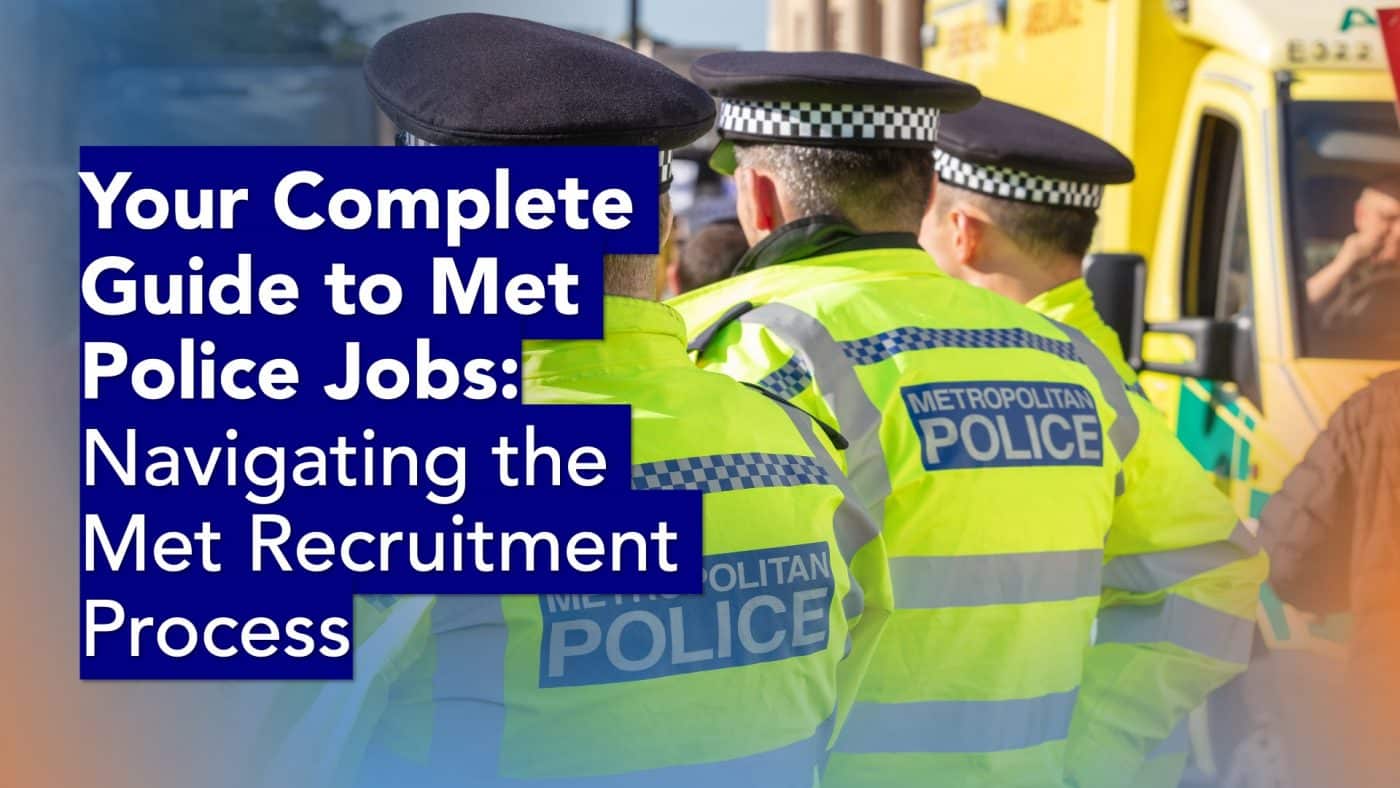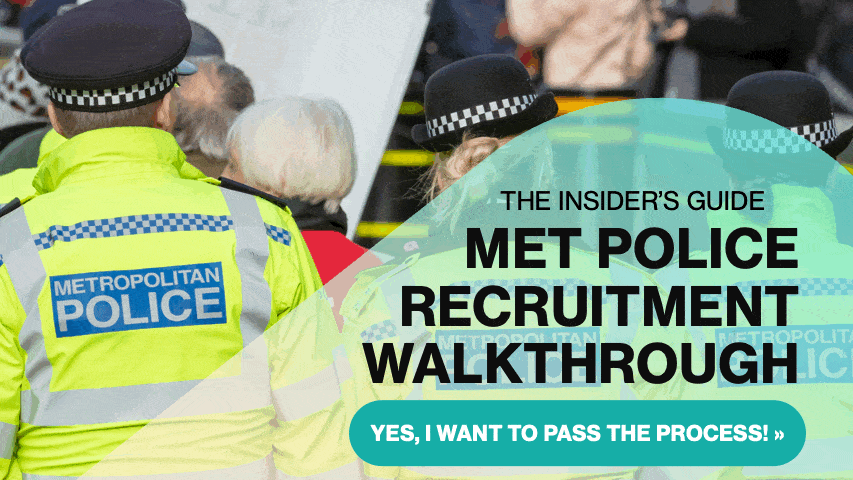If you’re seeking a comprehensive roadmap to securing Met Police jobs, you’ve landed in the right place. This guide will walk you through the most up-to-date Met Police application process, from the online assessments to the Met Police final interview. Whether you’re a newcomer or considering a career shift into Metropolitan Police jobs, this guide is for you.
Contents:
- Introduction
- Eligibility Criteria
- The Met Police Application Process
- Online Assessments
- Assessment Centre (known as “Day 2”)
- Met Police Final Interview
- Conclusion
Introduction
Navigating the path to a fulfilling Met Police career involves multiple steps, each crucial in its own right. This guide is your go-to resource for each stage of the Met recruitment process.
Eligibility Criteria
Before you submit your Met Police application, ensure you meet the following requirements:
- Age: Minimum of 18 years
- Nationality: UK citizen, EU/EEA national, or foreign nationals with indefinite leave to remain in the UK
- Criminal Convictions: Typically, a criminal record will disqualify you
-
Research: Identify the role that aligns with your interests. Police Constable is often the entry point for many Metropolitan Police careers.
-
Online Application: Head over to the official Met Police careers website, find the Metropolitan Police jobs that suit you, and fill out the Met Police application.
- Tip: Be meticulous; even small mistakes can be costly.
Online Assessments
As outlined by the official Met Police website, the Met recruitment process starts with online assessments:
-
Situational Judgement Test: Measure your ability to make decisions in job-related scenarios.
-
Behavioural Styles Questionnaire: Understand your work-related preferences and tendencies.
- Tip: Be genuine; the test is designed to assess if the Met Police is the right fit for you.
Assessment Centre
If you pass the online assessments, you’ll proceed to the Assessment Centre, which includes:
-
Competency-Based Interview: A face-to-face interview evaluating your skills and experiences.
- Example Questions:
- How have you displayed leadership in a team setting?
- Describe a situation where you handled a difficult conversation effectively.
- Example Questions:
-
Written Exercise: Draft a response to a provided scenario.
- Tip: Focus on clarity and detail. You’re evaluated on your writing skills and problem-solving abilities.
-
Briefing Exercise: You’ll receive a pack of information to analyse before presenting your findings.
- Example: Present a plan on how to manage community relations after a high-profile incident.
Met Police Final Interview
The last step is the Met Police final interview. This interview is more detailed and usually includes situational and behavioral questions. Here you’ll dive deep into your experiences and qualifications.
- Example Questions:
- Why do you want to embark on a Met Police career?
- Describe a situation where you made a tough ethical decision.
- Explain a time when you had to adapt your communication style to effectively get your message across.
-
Tip: Adopt the STAR method (Situation, Task, Action, Result) to articulate your answers clearly.
Conclusion
Metropolitan Police jobs offer more than just employment; they provide avenues for substantial personal and professional growth. This guide should help you move confidently through your Met recruitment journey, from the Met Police application to the all-important Met Police final interview.

